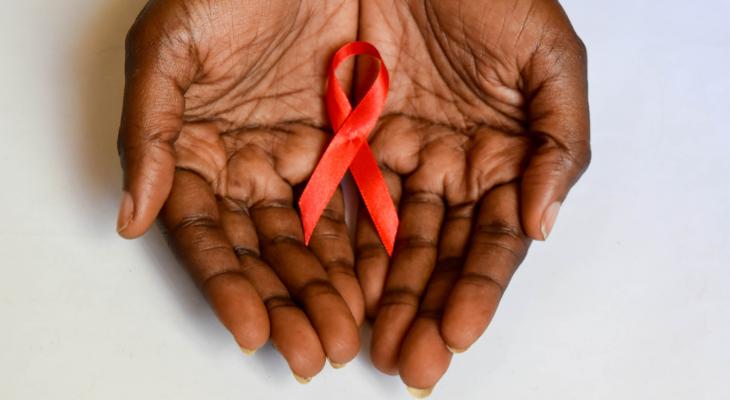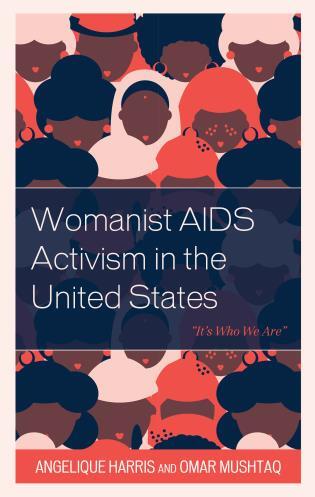For Many Black Women, HIV/AIDS Activism is a Matter of Faith
February 1, 2022

Black women in our country have always been trailblazers and community leaders and yet often not recognized for their impact. Whether in church groups, civil rights or health and education initiatives, Black women have and continue to be essential to leading and empowering change. When it comes to HIV/AIDS advocacy, stigma reduction and creation of programs to support and educate their communities about this endemic, the role of Black women has not been well documented.
Arising from their work on sexuality, gender and the Black Church, Dr. Angelique “Angie” Harris (pronouns she/they), a professor of internal medicine at Boston University, has partnered with sociologist Omar Mushtaq (pronouns he/him) to write a new book that highlights Black women HIV activists within their spiritual/religious communities.
Share
Related Articles
Racial Equity
Racial Equity
Immigrant Faith Communities On Rooting Out Anti-Black Racism
American Civic Life

To mark National Black HIV & AIDS Day February 7, IFYC hosted a conversation with Black thought-leaders, activists, and organizers engaged in on-the-ground efforts to destigmatize HIV and eradicate the virus.
In my conversations with both of these scholar-activists, I was inspired by their individual stories and connections to their important book. As a spiritual person that has challenged and engaged in interpretations of my own religious traditions within an equity and inclusion framework, I was really excited to learn how the Black women interviewed approached their advocacy work. For these individuals, there was not a specific catalyst or personal story to why they began advocating in their religious communities; it was from an intrinsic sense of responsibility in addressing an injustice, namely the lack of any formal response by their church communities to the ongoing HIV/AIDS crisis.
“Black women have always been involved in the mobilization of their communities, and for these women it was the same. It wasn’t just personal, but for a broader community impact,” Dr. Harris said. While they worked within these religious hierarchies, the authors found that the women were more likely to lead from their spiritual connection to a higher power. “Regardless of social class, all the women we interviewed emphasized an upbringing to support and empower the community,” Dr. Mushtaq said.
Especially within a male-dominated religious hierarchy, these women were able to reimagine and reframe for their communities why and how working to address HIV/AIDS in their respective community is the embodiment of Christian ideologies. While many of the women interviewed talked about homophobia as a barrier, they approached their communities with a message of: “You might not like them [LGBTQ people]…but you can pray for them, and you’re Christian and this is what Jesus did.”
By focusing on the spirit of Jesus rather than on Church doctrine, these women were able to get buy-in from their communities, even if reluctantly at times. The interviewees also noted that many of their initiatives were quite simple yet complicated – from bringing up HIV topics during church services to hosting community groups and partnering with local LGBTQ and HIV/AIDS networks. Each of the women had to build relationships and address shame, fear and stigma within their communities to ensure successful engagement.
By focusing on the spirit of Jesus rather than on Church doctrine, these women were able to get buy-in from their communities, even if reluctantly at times.
By focusing on the spirit of Jesus rather than on Church doctrine, these women were able to get buy-in from their communities, even if reluctantly at times.
While all the women worked within religious spaces, the authors also noted that each differentiated between the religious institution and their personal spiritual connection to a higher power. Though many of them grew up and worked in church spaces, they identified as spiritual and decided to take up space in their community for an issue that needed to be addressed.

A new book focuses on women’s AIDS activism in churches.
At a pedagogical level, this book also explored two key frameworks to understand why and how these women engaged in their activism, namely Womanism and Intersectionality. Legal scholar and author Kimberlé Crenshaw’s conceptualization of intersectionality is well known in academic and social justice circles, but the authors found Womanism to be a better framework for understanding these activists and their work. Professor and Womanism scholar Layli Maparyan defines Womanism as a movement to “restore the balance between people and the environment/nature and reconcil[e] human life with the spiritual dimension.”
With this book, I believe the authors ask some important questions such as: How can we better understand the role of Black women activists through Womanism as a framework? What does it mean for us to work within our communities to reframe social justice topics in ways that are accessible and transformative? And: How can we learn more about our personal responsibilities to take up space in conversations and systems to address social inequalities affecting our communities?
These scholars are living proof that representation matters and when we uplift our community’s voices, all of us benefit. As we work to undo stigma around HIV/AIDS, especially within religious and spiritual spaces, we need to create space to engage in difficult conversations, take risks and reinterpret our frameworks to transform the future.
Raja Gopal Bhattar, Ph.D., (they/them/theirs) hails from a long lineage of Hindu spiritual leaders from the Srivaishnava tradition. They are a higher education leader, advocate, and consultant.



